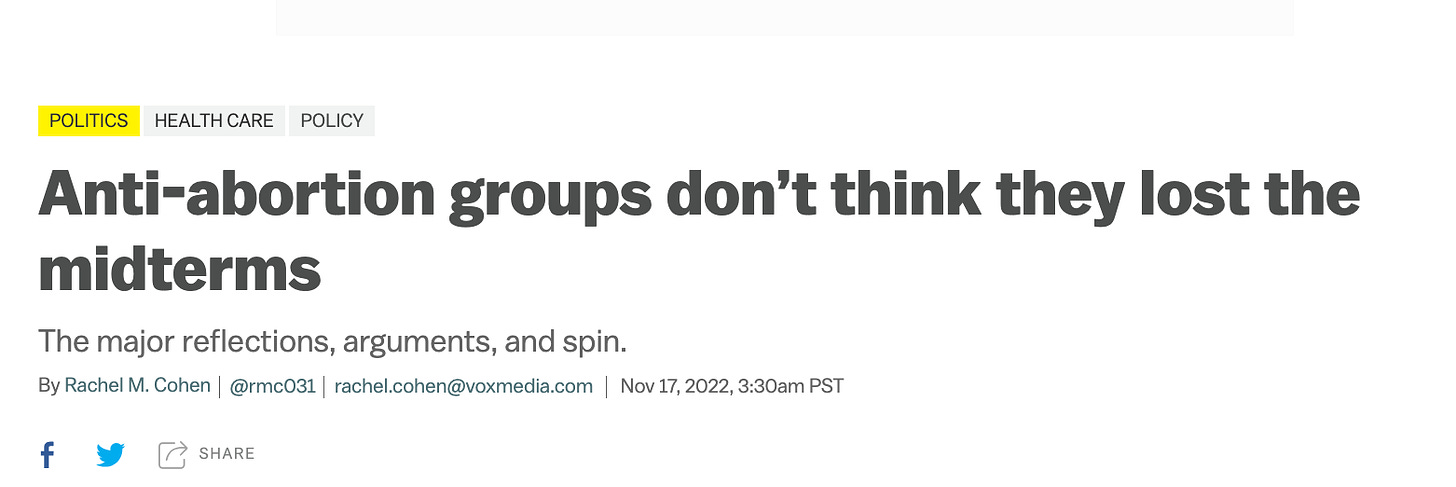I am very tired writing this because I woke up at 4 AM to file my draft, to publish this story, so you could read this morning about what last night’s election means for abortion rights.
I hope you read it! Last night was a really big deal.
I’ll have more to say soon, but until then I thought I’d share the story and some postscript thoughts I posted on Twitter this morning.
Last night’s election was a much bigger blow to the anti-abortion movement than even the midterm contests last year. After the 2022 midterms, the anti-abortion movement came out to say the results weren’t as bad as people claimed, and that they only lost all six ballot measures because they were taken off guard and Republican leaders failed to campaign hard enough. They promised that wouldn’t happen again, that things would be different. We covered this at the time:
When Democrats continued to win subsequent special elections in 2023 and polls showed that the U.S. was growing even more supportive of abortion rights, the anti-abortion movement urged Republicans to stay the course, insisting they could even get more aggressive on rolling back access, that they would not be punished by voters.
Last night anti-abortion campaigners in Ohio did everything the ‘pro-life’ movement urged them to do. They tried to make it about “parents’ rights” and trans youth healthcare. They tried to make it about abortion “up until birth.” They tried to raise the voter threshold to 60 percent. They leveraged the state’s GOP governor, secretary of state, state attorney general.
They did all of that and still lost by a double-digit margin. The fact that they lost in such a conservative state is remarkable.
It’s Virginia though that has really upended the anti-abortion movement’s plans and talking points for next year. It’s there that Republicans hoped they could prove the idea of a “moderate” and “consensus” 15-week ban (or “limit” as they preferred to call it.)
But polls showed voters were not willing to give up 12 weeks of legal abortion rights that they already had, and they did not trust that the GOP wouldn’t push for more cuts down the line. (In Florida, for example, Republicans passed a 15-week ban in 2022, and then a 6-week ban in 2023.)
In general I would say people need to be much more skeptical of surveys that ask voters about their thoughts on 15-week bans. First of all, respondents are much less supportive of them than they were in surveys pre-Dobbs, so pay attention to the date of the poll being cited. But secondly, many voters say in the same poll that they don’t want to roll back access to abortion rights, or they want to loosen restrictions, or that they want to keep their law as is. It’s important to consider how voters respond to a battery of questions, especially on a topic as sensitive to wording as this.
But for the record, this is what October 2023 polls in Virginia were showing on 15-weeks. There was not majority support. Nationally we see similar trends. A July NYT/Siena poll found even a third of Republican voters oppose the 15-week idea
Supporters of abortion rights shouldn’t be complacent - and I talk specifically about why in the story published today. But after last night the anti-abortion movement should definitely be worried, as should Republicans who choose to align themselves closely with them.





